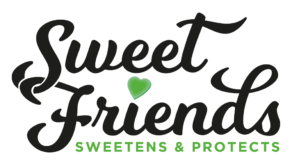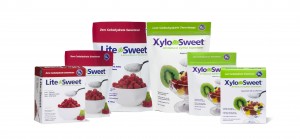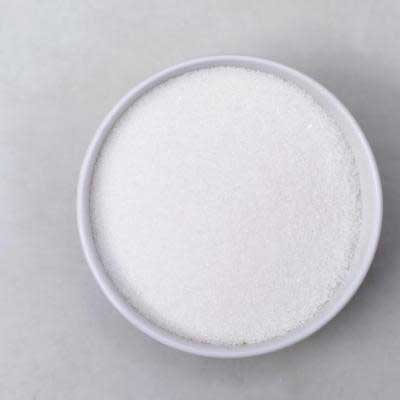
01 Nov Are You Using the Healthiest Sweetener?
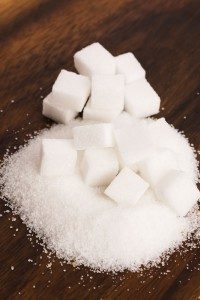 The Fat Truth About Sugar
The Fat Truth About Sugar
In a nutshell, fat isnt making us fat, sugar is making us fat! Consumers are more educated and are now demanding higher standards from their food manufacturers, such as use of non-GMO and organic ingredients. They are also demanding natural, low calorie sweeteners instead of simply accepting chemical sweeteners, such as sucralose or aspartame.
If you’re old enough to remember the beginning of the low-fat movement, an era of tacky exercise videos, health clubs popping up, and ads from food manufacturers boasting about their new and improved low-fat versions of everything from breakfast cereal to ice cream, did this switch to low-fat make a difference? Obesity has become an epidemic in the United States, and since the rest of the world is following in our steps, the answer to that question is a resounding No! According to the National Health and Nutrition Examination Survey, the Body Mass Index of Americans as a society is 25 pounds heavier than it was 25 years ago, which was just shortly after High Fructose corn Syrup (HFCS) was introduced to the United States.
New Zealand figures for obesity are in the following graph. Link to Original Source
Food companies took the advice of the American Heart Association, American Medical Association, and US Department of Agriculture to reduce fat from 40% to 30%, and they began adding sugar and HFCS to their products to make up for the loss of flavor when the fat was reduced. The human body can only tolerate 12-15 grams of sugar a day before it converts it to fat. Despite all the low-fat diets and exercise, this helps explain the increased incidence of obesity and related medical disorders plaguing our society, such as heart disease, metabolic syndrome, and even arthritis. In a nutshell, fat isnt making us fat, sugar is making us fat!
Thanks to the efforts of health professionals such as Dr. Robert Lustig, Dr. M. Frank Lyons II, Jorge Cruise, and many others, the word is spreading that we need to eliminate sugars, fructose, and HFCS. We need to eat whole foods as much as possible. Consumers are more educated and are now demanding higher standards from their food manufacturers, such as use of non-GMO and organic ingredients. They are also demanding natural, low calorie sweeteners instead of simply accepting chemical sweeteners, such as sucralose or aspartame.
The best natural sweetener on the market today is xylitol. It looks like sugar, tastes like sugar, and for the most part cooks like sugar, but with 40% fewer calories. The liver produces 1-2 teaspoons of xylitol per day to aid in metabolism, so it is nothing foreign, like sucralose or aspartame. Xylitol is not a super sweetener and has a one-to-one sweetness ratio to table sugar. It has no artificial aftertaste and is a delicious substitute for sugar when cooking. Not only is xylitol completely safe, it is highly recommended for people with diabetes or insulin resistance, because it does not spike blood sugar levels. Xylitol is ranked very low on the glycemic index at 7, comparing to table sugar at 85, honey at 55, and agave nectar at 30. Because xylitol is slowly released into the bloodstream, there is an increased sense of satiety, or feeling full, after eating. There are literally thousands of research studies confirming the vast health benefits of xylitol.
Because many pathogenic bacteria and yeast cannot metabolize xylitol, such as bacteria that cause tooth decay, dental organizations in the United States and around the world recognize and support xylitol for preventing problems in the mouth. It is very popular in Scandinavia and parts of Europe and Asia and is easy to find in stores. Xylitol, such as XyloSweet manufactured by Xlear, Inc., is non-GMO, and proven to be safe, as well as easy to incorporate into your daily diet.
Other natural sweetener substitutes that are gaining popularity include stevia, agave nectar and coconut sugar. Agave nectar or syrup is an amber colored liquid that is less viscous than honey so it pours easily, and is about one and a half times as sweet as table sugar. Even though agave is considered to have a low glycemic index, it is quite deceptive because it contains as much as 57% fructose, depending on the manufacturer. Processed fructose, when it is concentrated and turned into a syrup, is dangerous to the body, as it can create host of metabolic disorders such as blood sugar spikes, insulin resistance, increased triglycerides, fatty liver disease, and increased abdominal fat. In comparison, xylitol is a safer bet when considering it is not combined with any other sugars which may induce metabolic disorders.
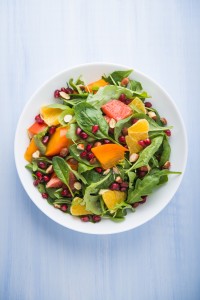
Coconut Sugar, often confused for Palm Sugar, is a nutrient dense sugar crystal. It is golden in color, has a glycemic index of about 35, and can be used as a sugar substitute in cooking and baking. Coconut sugar contains vitamin C, as well as several of the B vitamins. It is a good source of magnesium, and contains other minerals such as iron, potassium, and zinc. Because coconut sugar contains the fiber inulin, it is slowly absorbed from the digestive tract into the bloodstream, minimizing blood sugar spikes. Unfortunately, coconut sugar contains 70-80% sucrose, equaling about 35-40% fructose, which, like agave nectar, can lead to a host of metabolic disorders. If comparing coconut sugar to xylitol, again, one need not worry about health concerns stemming from hidden sugars.
In the next five years, the alternative sweetener market will be a 15 billion dollar industry, so it is important that consumers are aware of what they are purchasing and how the ingredients will affect their health. One can always rest assured that xylitol is a safe and delicious addition to the kitchen cupboard.
 Julie Seager, RDH, BSDH has been a practicing dental hygienist for 22 years. She is currently employed by Wasatch Sales Force representing the products of Xlear, Inc. in the Western U.S. where she presents educational courses to dental professionals and consumers on the importance of the oral-systemic health connection and the role xylitol plays in achieving better health. Julie also maintains a part-time dental hygiene practice in Sacramento, California where she specialises in caring for clients new to the U.S. who have had little or no prior dental care. She is a member of the American Academy of Oral Systemic Health, the American Dental Hygienists Association, and the American Academy of Dental Hygiene.
Julie Seager, RDH, BSDH has been a practicing dental hygienist for 22 years. She is currently employed by Wasatch Sales Force representing the products of Xlear, Inc. in the Western U.S. where she presents educational courses to dental professionals and consumers on the importance of the oral-systemic health connection and the role xylitol plays in achieving better health. Julie also maintains a part-time dental hygiene practice in Sacramento, California where she specialises in caring for clients new to the U.S. who have had little or no prior dental care. She is a member of the American Academy of Oral Systemic Health, the American Dental Hygienists Association, and the American Academy of Dental Hygiene.
